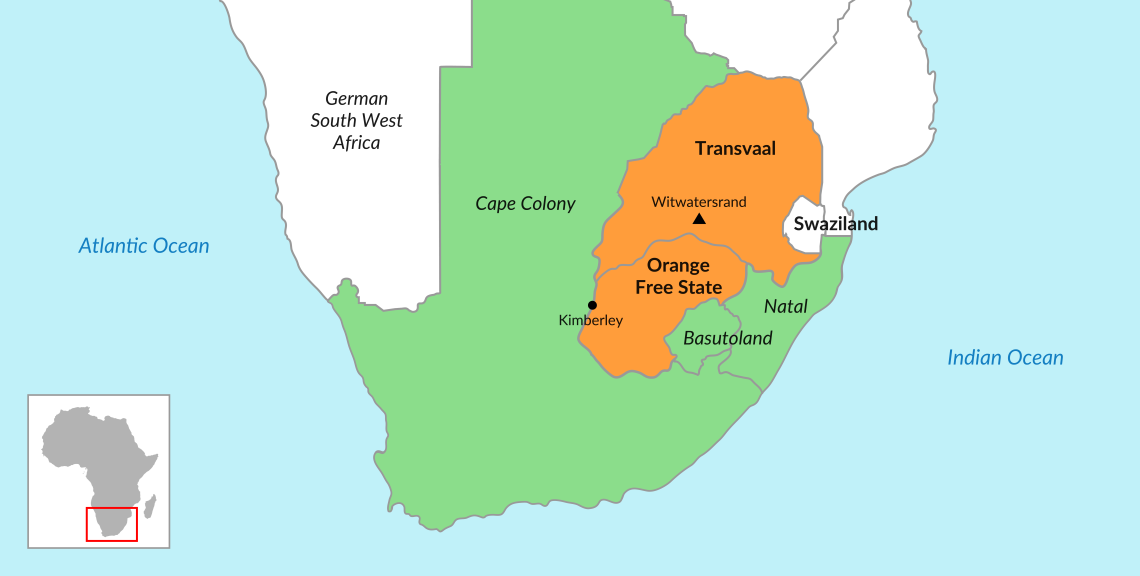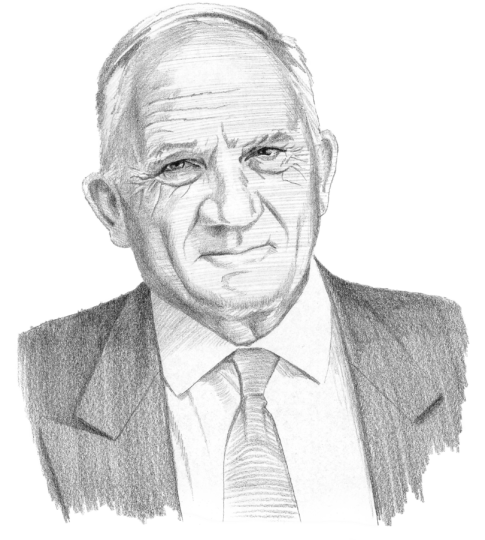How empires enter their twilight
Historical events carry lessons for today’s Russia and Western countries.

Generalizing can lead one astray in interpreting history, but the record of thousands of years of human civilization shows with reasonable clarity that powers rise, often become arrogant, overreach and decline. As decline breeds unrest, a declining power is dangerous. When that happens, other major powers also tend to act unreasonably. They do not grasp that they might be in decline as well.
At the United Nations General Assembly in February 2022, United States Secretary of State Antony Blinken stated, “If Russia stops fighting and leaves Ukraine, the war ends. If Ukraine stops fighting, Ukraine ends.” That may be correct, but it only scratches the problem’s surface. There is more to this conflict, as geopolitical fundamentals are at stake.
History offers many parallels to what we are witnessing in Europe right now. Land grabs by strong powers are nothing new. Examples of complete incorporations of neighboring states exist, but in 18th and 19th century Europe, it was rather takeovers of chunks of land by changing borders.
Read more on the war
The road to war between Russia and Ukraine
A British folly 120 years ago
A striking parallel to what has been happening in Ukraine occurred in Southern Africa at the turn of the 19th and 20th centuries, when the mighty British Empire attacked two independent states: the Transvaal Republic and the Orange Free State. It was an imprudent move for the British, contributing years later to a complete global power shift.
In the 17th century, Dutch settlers and French Huguenots, both mainly Calvinist Protestants, arrived and established roots in Africa’s southern Cape region. The area became the British Cape Colony in 1795. Many of the settlers felt oppressed by the British administration and moved their business to the empty lands in the northeast. There they created two agricultural states with republican governance. The area was of no geopolitical interest between the 1820s and the 1870s, and the Boers (“farmers” in Dutch), as the settlers were called, enjoyed their freedom.
However, with the colonial land grab in Africa advancing in the second half of the 19th century, London’s interest in the two republics increased. It began to find ways to weaken the settlers by encouraging African tribes to attack the Boer farms in the newly cultivated lands.
The First Anglo-Boer War brought heavy losses and no glory to the aggressor.
In the third quarter of the 19th century, the British pressure mounted – like Russia’s recent steps in Ukraine. Feeling colonial competition from other European powers, London wanted to create an uninterrupted security corridor in the eastern part of the African continent, from Cairo on the Mediterranean to the Cape of Good Hope. An equally strong motivation for the British was the search for gold on the Witwatersrand in Transvaal (now the Johannesburg area). It became one of the world’s largest gold-mining centers, creating previously unimaginable wealth. Also, diamonds were found in Kimberley, in the border region between the Orange Free State and the British Cape Colony.
Pyrrhic victory
Britain attempted to suppress the Boer states in two waves. The First Anglo-Boer War (1880-1881) brought heavy losses and no glory to the aggressor. Under the 1881 peace, London consented to Boers’ self-government in Transvaal under Queen Victoria’s suzerainty, while the Boers handed external relations over to the British.
The British Empire was the world’s leading power and decided to incorporate the two independent states by force only a few years later. During the Second Boer War (1899-1902), the patriotic Boers, by far inferior in armaments and headcount, defended themselves valiantly and effectively. Despite their military and economic superiority, the arrogant British suffered many defeats in the field and, politically, a massive loss of face.
The war lasted for more than two years. The British could only defeat the two states by exhausting them and throwing an endless supply of its soldiers, armaments and other equipment into the conflict. The brutality of the British invaders was horrible. They burned down farms and fields, stole livestock and put women and children in concentration camps. Some 30,000 Boer women and children died of hunger and disease in these camps. Additionally, some 20,000 indigenous Africans, believed by the invaders to be loyal to the Boers, perished in the camps. In the face of such atrocities, the Boers finally surrendered.
Alarming similarities
The poor performance of the British military and, therefore, the invaders’ turn to atrocities, are further parallels to Russia’s war in Ukraine.
However, that land and power grab – a manifestation of jealousy between nations – was only one of the pieces in a larger mosaic of power plays that led to World War I. The Boer wars, born of London’s arrogance and greed, led to World WAR I and the ending of Europe’s global dominance and the British Empire with some 30 years of delay. It misused and sapped the continent’s strength as much as the breaking of the Central Powers – Germany, Austria-Hungary and the Ottoman Empire in World War I. It is also interesting that young Mohandas Gandhi (1869-1948) lived in Natal, South Africa, during the Second Boer War. The conflict played a formative role in his life and eventually led him to launch the historic opposition to British rule in his native India.
The Boer wars were a textbook example of shortsighted political calculations within narrow, unimaginative models. However, they are also an excellent case study. The Kremlin, unfortunately, believes in Zbigniew Brzezinski’s view that “without Ukraine, Russia ceases to be an empire, but with Ukraine suborned and then subordinated, Russia automatically becomes an empire.” The British cabinet believed in a similar misconception: that it had to take over the two countries in Southern Africa to protect the empire and the wealth of its possessions there. Other European powers, such as Germany, showed sympathy for the Boer states and gave them some support, but not enough to make a difference.
The role of false narratives
The Australian-born historian Christopher Clark wrote “Sleepwalkers,” a superb analysis of how early in the 20th century, the leading European powers slipped into a self-defeating war by sheer ignorance, shortsightedness and preoccupation with secondary issues. Professor Clark, who teaches at the University of Cambridge and has been knighted for his service to Anglo-German relations, also refuted the vaevictis (woe to the vanquished) post-World War I narrative that frames Germany and Austria-Hungary as the culprits. The blame is on all European powers.
To London’s credit, two personalities learned from the disaster: King George VI and Winston Churchill
Something else is also important: war needs propaganda narratives. If a country starts believing its legend and moralizing, things quickly become dangerous. Britain and France framed their war as a defense of freedom and democracies against autocrats. That was a bold-faced lie, as Germany and Austria were already constitutional states with robust parliaments. The only big autocracy was Russia, London’s and Paris’s ally. The Germans’ march through neutral Belgium was ethically not different from Britain’s behavior in southern Africa. However, that made a poor excuse for Berlin.
The British Empire did not stop and retreat. Transvaal and the Orange Free State had to cease fighting to stop the atrocities and save their wives and children. Fifty years later, the British Empire no longer existed. To London’s credit, two personalities learned from the disaster: King George VI (1936-1952) and Winston Churchill, the two-time (1940-1945 and 1951-1955) British prime minister. They realized the necessity of resisting the Nazis at all costs and (unsuccessfully) tried to stop Russian dictator Joseph Stalin’s land grab toward the end of World War II.
The lessons to finally learn
Those historical events carry lessons for today’s Russia and Western countries. The West must resist the Russian invasion of Ukraine with all its means. For Russia, it would be much better to ignore the Brzezinski axiom and concentrate instead on its own development. Only upon a successful Ukrainian defense can an equitable peace be achieved.
A seemingly secondary, distant conflict in southern Africa triggered a slow-fuse descent into a catastrophic, multipower war in Europe. That can serve as a dire warning because we might be in a similar situation today.
Read more on imperial Russia
Ukraine in a new security framework
Why compromise with Putin is not the solution in Ukraine
Russia in Africa: the ‘covert action’ strategy
Hotspots abound around the globe, and statesmanship is in dramatically short supply. The dominant perception of a growing conflict between democracies and autocracies over a so-called “rules-based international order” may sound nice, but it misses the point. The post-World War II bipolar order is finished, and the world is multipolar again. Keeping the peace will require courage, resolve and imagination, not clinging to tired cliches and outdated political models. Unfortunately, changes in the global order have frequently led to wars. The West must be strong and alert to avoid a repeat of the pattern.
The Ukraine situation shows that we are at a crossroads again. Further developments will decide whether a new multipolar balance can be achieved, allowing a more peaceful coexistence of nations. Preserving people’s freedom and their right to self-determination is key.
What needs to be done
Europe needs to become strong. It needs to be united as a market and in the global economic and security competition. Politics, administration and the public must finally learn that harmonization policies are toxic for healthy integration. European countries need to reduce technocracy and bureaucracy regionally, nationally and on the union level. The European Union needs to restrict itself to its few proper functions. These are: maintaining the common internal market in the broadest sense and finessing its global trade policy and security. These matters need to be addressed together. For all the rest, decentralization and healthy internal regional competition should be prioritized.
A strong, self-conscious, unarrogant Europe arising – together with North America – could lead to a new multipolar balance.




